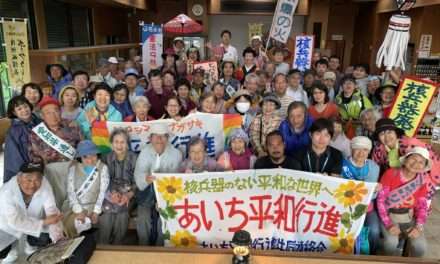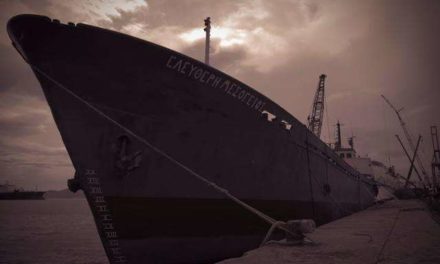Aditi Bhaduri*
On a lovely autumn day in late October I landed in Ramallah, the de facto capital of the Palestinian Authority in the West Bank. Mellow sunshine bathed the town in a warm glow. I was back there after five years and I saw signs of change all around – in the spruced up new houses, in the ATM machines that had not been there earlier, in the many cafes and boutiques that had sprouted up, and in the frantic constructions on. I was there to attend the World Education Forum, the Palestinian Territories had been chosen as the venue for it this year, on behalf of Focus on the Global South, an organisation committed to the Palestinian cause.
Why Palestine? For one, Palestinians attached enormous importance to education. It will not be an exaggeration to say that in the West Asian Arab world, Palestinians attached the greatest importance to education. Palestinians still do not have their nation state; unlike other Arab nations, the Palestinian people and lands lie fragmented, cut off from each other.
Yet, the tiny territory of the West Bank – split up into Israeli and Palestinian governed conclaves – boasts four universities, while besieged and cut-off-from the world Gaza has one; Bir Zeit University near Ramallah established the first department for gender studies in the Arab world; . When we place these in the context of a people who till the last decade were not even allowed to develop their own school curriculum we know that these are heroic feats.
For all those familiar with Palestinian society know that simple things in these territories take much time and effort. Moving from one Palestinian town to the other, for instance, or inviting a friend over, travelling to class or getting admission to a school or college in another town. And to organize an international forum was beyond the expectation of many. It took time and effort and a lot of patience. Visas were refused to guests, special requests had to be made by the Palestinian Authority to the Israeli authorities to have people from countries like Morocco – with which Israel has no diplomatic relations – enter the Palestinian territories. A lot of cajoling and such participants were granted permits to enter the Palestinian territories through Jordan and leave via the same route without entering into any territory under the control of Israel. As Mirelle Fanon, the daughter of Franz Fannon, reminded at a meeting, the occupation of Palestinian lands was the (last?) living example of colonialism in its classical sense.
Hence, holding the WEF in Palestinian cities, including in Gaza, and in Beirut, the capital of a country where a sizeable Palestinian community dwells as refugees, was a symbolism that went merely beyond the right to education. It was the undying resilience of the human heart and its hope in justice, a hope it refuses to surrender, no matter what the provocation, no matter how heavy the burden.
The WEF was simultaneously held in many Palestinian cities – Ramallah, Jenin, Nablus, Hebron and Bethlehem in the West Bank, in Gaza, in Beirut in Lebanon, and also in Jerusalem, and in the Israeli cities of Haifa, Jaffa and Nazareth, which formed part of undivided Palestine and where even today large Arab communities dwell. The idea was to connect all the Palestinians, who for circumstances not of their making and not in their control, lived separated, by political boundaries, each from the other.
The inauguration and closing ceremonies were held in Ramallah. There were few internationals, mostly French, some Moroccans, a few Canadians and a smattering of people from some other countries like Spain, Brazil and Peru.
I attended the events in Ramallah, where the WEF began with a solidarity march for Palestinians across the city of Ramallah and converged at the Palestinian Cultural Centre. It was a big march, in which almost all residents of Ramallah and other Palestinian towns participated. The mood was jovial and sprits were high. It was a demonstration of solidarity and it cheered the Palestinians to know that they were not alone, the world stood by them; the march also manifested intra-Palestinian solidarity.
Speeches by both Palestinian organizers and by international supporters like Pierre Beaudet marked the inauguration. They outlined how education under occupation was education under duress and Palestinians were gallantly continuing to keep their educational institutions functioning, against all odds. They also spoke about how important a tool education was for the liberation of peoples. Political activist, and a nominee for the 2010 Nobel Peace Prize Mustafa Barghouti was one of those who addressed the occasion, and he stressed that the Palestinian Authority must strive to make education accessible and compulsory for all Palestinians.
The evening ended with colorful presentations by Palestinian children and youth of Palestinian dances and music.
From the next day the forum was in full swing and with parallel events took place at different locations across the West Bank, in Gaza, inside Israel and in Beirut. I wished that I could have attended all the events but that was simply physically impossible. Panels formed with speakers from different organizations and educational institutions. Events were a bit chaotic but that was only to be expected as chaos is an integral part of every forum that renders such events more human and therefore more delightful. Moreover, considering that movement between Palestinian towns was not easy, though distances were not intimidating, it was actually a miracle that the forum could take place at all.
Discussions and debates were however enlightening. One of the day long events that I attended at Bethlehem University was particularly inspiring. The primary debate was on the quality of education in the Palestinian territories today, critiques of the Palestinian Authority and a presentation on how Palestinians should use the media and the language of peace to promote a culture of peace, tolerance and appreciation of diversity in Palestinian society. There were also criticisms of the insufficient resources allocated to education, of the use of religion for programming the minds of the young and undiscerning, and how history was being taught; there was a stress on the importance of teaching Palestinian children and youth the histories and cultures of other nations and peoples too, so that Palestinians remain connected not only to each other or to the Arab world, but to the global community. Further, there were calls for democratization and for the freedom of thought in Palestinian society.
What came out from these debates and discourses was the sense of urgency that the teaching fraternity felt with regards to state censorship and control over education and culture in the Palestinian society. After all, few forget, that one of the first measures the Palestinian Authority took after its establishment was to ban the works of Edward Said in Palestinian institutions, when Said was taught even in Israeli institutions, not to mention in those of other countries of course. Further, there seemed to be a wariness of what the cultural and educational underpinnings of a HAMAS takeover of the West Bank may be. The teaching community is aware of these undercurrents and it was heartening to see that these issues were being debated and not being swept under the carpet in the larger Palestinian discourse challenging the Israeli occupation.
The closing ceremony took place in Ramallah and was a more somber affair than the inauguration. The WEF closed with plans for a big conference on Palestine to be held the next year as part of the World Social Forum process. The venue and details were to be further discussed but Morocco was mooted as the potential venue. The resolution and plan of action of the Conference on A Just Peace for Palestine, held in New Delhi in September 2010 was also announced at the forum and evinced a great deal of interest. It will be included in the WEF report and Al Quds, the largest Arabic daily in the territories, has also published it.
While leaving Ramallah, I was thanked profusely by the organizers. As always, I felt a bit guilty – I was going back to a normal life, a free life. They were remaining behind to face the check points and closures. And as always, my guilt was tinged with gratitude – not simply for tasting the hospitality that Palestinians are famed for, but for once again being allowed to witness the enormous resilience that the human soul is capable of.
* Aditi Bhaduri is communications officer with Focus on the Global South (India).








